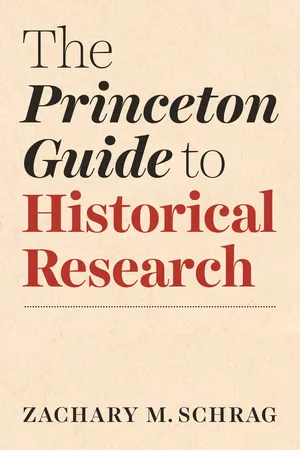History Is the Study of People and the Choices They Made
History does not include every study of the past, for, as Bloch observed, a great many events of the past belong to scholarly disciplines other than history. He offers the example of the siltation of an inlet, centuries ago. Once there was water; now there is land. There is no question that this change took place over time, an event. Yet had natural forces alone caused that event, the best scholar to explain it would be a geologist. Bloch next tells us that the people of Flanders had both assisted the siltation by building dikes and channels, and that they reacted by moving the harbor of Bruges. With that information we are firmly in the territory of the historian, though presumably the geologist would still have valuable insights to offer. To be sure, historians care about the power of nonhuman elements—natural forces, technologies, commodities—to shape and constrain human action. But objects alone do not make history. According to its subtitle, Marcy Norton’s Sacred Gifts, Profane Pleasures is A History of Tobacco and Chocolate, both inanimate substances. According to its introduction, however, it is the story of “determined and frightened soldiers, zealous missionaries, resourceful plantation slaves, defiant Mesoamerican nobles, adaptive Indian commoners, mestiza love sorceresses, unsubjugated Carib Indians, cosmopolitan European humanists, crypto-Jewish Portuguese traders, lofty Sevillan merchants, worldly clergyman, scrappy sailors, reforming financial ministers, the patrons of smoky taverns, and the guests of well-appointed noble mansions.” Now that’s history.
It is perhaps more controversial to insist that history is the study of choices, but I would argue that the interest in choice distinguishes history from the purely descriptive work sometimes done by archaeologists, demographers, epidemiologists, and other students of the human past. (I am well aware that practitioners of these fields are often quite interested in the choices people made.) When historians read words, they want to understand why people chose those words. When historians examine artifacts, they want to understand why people chose to create, acquire, and perhaps discard those artifacts. When historians trace pathogens, they want to know how people understood disease and how they tried to prevent it, heal it, or infect others. Norton wants to know why Europeans chose to adopt tobacco and chocolate in the forms they did.
Many historians focus on people’s choices about what to do, that is, their actions. Thucydides sought to explain why Athenians and Peloponnesians went to war after a thirty-year truce, and for centuries historians focused on similar choices of statecraft. In the nineteenth and especially the twentieth centuries, historians broadened their view to include a great many humbler folk, but these people also had choices to make. At what age to marry? What job to pursue? Should they stay home or emigrate to a new town or a new land? Learn to read? Other scholars study people’s choices, not about what to do but about what to think and feel: their thoughts and emotions. These can be elite intellectual histories, such as questioning why Margaret Fuller embraced transcendentalism, or they can tell the stories of how large groups of ordinary people understood the world around them. Whether the subjects are near universal experiences (pregnancy, death) or new phenomena (electricity, nationalism), explaining why a person chose one path and not another is the work of history.
In studying choices, historians embrace contingency: the belief that had people made different choices, matters could have turned out differently. The concept is perhaps most easily grasped in military history; soldiers fight and die in war because they believe that their actions on the battlefield will determine the fate of nations. Historians believe this as well. Thus, in his epic history of the Civil War, Battle Cry of Freedom, James McPherson identifies “four major turning points” that could have led to the granting of Southern independence and a world unimaginably different from our own. “Northern victory and southern defeat in the war,” he concludes, “cannot be understood apart from the contingency that hung over every campaign, every battle, every election, every decision during the war.”
Contingency appears in other genres of history as well. Historians describe as contingent the meanings that people ascribed to mirrors and to wilderness, and the decision by some societies to maximize profit rather than equality. “Why did slavery expand in the early national United States?” asks Adam Rothman. The expansion, he argues, “emerged from contingent global forces, concrete policies pursued by governments, and countless small choices made by thousands of individuals in diverse stations of life.” Similarly, Allan Brandt does not believe that Americans were destined to take up cigarette smoking. “Without resorting to a set of fantastical counterfactuals,” he writes, “it is clear that the history of tobacco might well have followed different routes and taken decidedly different turns. Following the cigarette through the century offers a fundamental opportunity to evaluate the contingent nature of historical change.”
The opposite of contingency is determinism: the belief that a particular outcome was inevitable—geography, technology, or some other nonhuman factor forced people to act as they did. Historians generally hate this; if a historian calls you determinist, you have been insulted.
Closely related to contingency is the concept of agency: the power of people to shape the world in which they live. Historians have long attributed such power to princes and generals, but only relatively recently have they attributed agency to humbler people: women, defeated industrial workers, slaves. Even when constrained by those with far more power, they argue, these people could engage in small acts of resistance. As Naomi Lamoreaux explains, many historians hope “to show that ordinary people in some group (typically defined in terms of race, class, gender, or ethnicity) had agency—that their lives were not completely determined for them, that they had space to make their own choices.”
Historians do recognize that contingency and agency have their limits. No individual is powerful...
